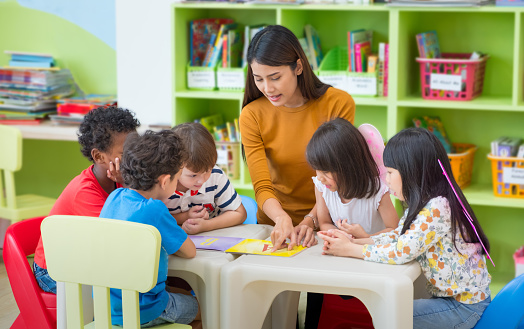Preschool can provide a solid foundation for your child’s academic years, also serving as a key early step in his or her success in life. But, how do you know if your child is ready to start preschool? Here are five issues to consider.
Potty Training Progress
If your child is not yet fully potty trained, then it’s important to know what the preschool’s policies are about toilet training, and then decide if your child is ready to move forward. If, for example, your child can already keep a dry diaper for at least an hour, then he or she is likely ready to begin potty training. If this isn’t the case, then you should carefully consider how assertively you want to focus on potty training as preparation for preschool. Parents.com suggests that you not force the issue.
Level of Independence
The same article suggests that, to help prepare your child for preschool, it’s time to NOT rush in to “rescue your child in every challenging situation.” Areas in which to encourage independence include (but aren’t limited to):
- hand washing
- nose wiping
- opening lunch containers
- managing simple clothing fasteners
- zipping up a backpack
- covering up his or her mouth when sneezing or coughing
- undressing at night
- picking out clothes for the next day
Here are more tips on how to nurture independence in your young child.
Ability to Express Needs
Before your child will start preschool, it’s important that he or she can describe feelings and needs in a way that an unfamiliar adult can comprehend. This could be a combination of words, sign language and other hand gestures, Understood.org points out, or with forms of technology, as needed.
Plus, your child should be able to understand and follow simple instructions. So, to prepare your child—and help to determine if he or she is ready for preschool—ask him or her to sit down then stand up and see how readily these instructions are understood and followed.
Also, your child will need to have at least a basic understanding that other children have needs and feelings, too. Here’s more information about empathy and sympathy in young children, with tips on how to help you child to develop these capacities.
Age-Appropriate Concentration
As a preschooler, your child should be able to pay attention during activities that are ten to twenty minutes in length, without getting overly distracted, although it’s normal for focus to be less than what’s typical in an older child. Here are games you can play to increase concentration and therefore prepare your child to start preschool.
Transitioning and Time Away Experiences
As you determine whether or not your child is ready to start preschool, VeryWellFamily.com lists more issues to consider. First, because preschools tend to run on reasonably set schedules, it’s important to teach your child how to transition from one activity to another. You could, for example, share that a game needs to end after this round because it will be snack time next.
Plus, if you’re always home with your child, it can help to have him or her spend short amounts of time with a babysitter to get used to spending time apart. If your child is an only child or otherwise isn’t used to playing and sharing with other children, then a playgroup, whether at the library, YMCA or park, could be good practice for the type of collaboration needed in preschool.




